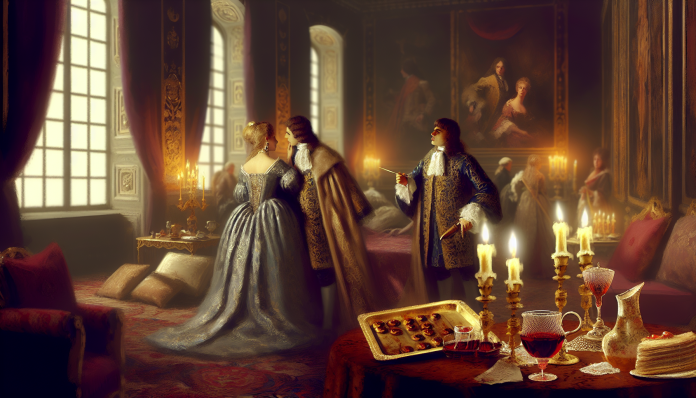When one thinks of Napoleon Bonaparte, visions of military genius and the rise of empires often come to mind. However, buried within the annals of his storied life lie love letters that reveal a different side of this emperor—a man passionate in both conquest and romance. Napoleon’s scandalous love letters to various conquests provide a fascinating glimpse into the societal norms of the late 18th and early 19th centuries, illuminating the complexities of love, power, and public perception.
A Time of Tension and Turbulence
The late 1700s to early 1800s was marked by profound upheaval in France and beyond. The French Revolution had shaken the very foundations of society, leading to shifting moral attitudes around marriage, fidelity, and sexuality. Romanticism was blossoming, with art and literature extolling passion and personal freedom, yet societal expectations remained firmly rooted in tradition. For men of power, like Napoleon, personal scandals could tip the scales of public opinion, especially in an age when women were often seen as defined by their relationships to powerful men.
The Scandal Unveiled
Among the most notable of his amorous escapades was his relationship with Josephine de Beauharnais, an intrigue that would last through ups and downs, including tempestuous letters exchanged between them. Napoleon’s letters to Josephine reveal a passionate side often obscured by his military persona. He would write about his ardor with phrases like “I am a captive held by my passion,” providing an intimate look into his emotional state while navigating the pressures of leadership.
However, his romantic pursuits extended far beyond Josephine. Letters unearthed from Napoleon’s time in Italy reveal flirtations with various women, including Emma, Lady Hamilton, and even relationships with numerous members of the court. His letters are not just records of longing but also filled with salacious details, making them revealing historical artifacts.
One such letter includes a vivid description of his infatuation and desire, showcasing Napoleon’s penchant for romantic dramatics. His words were both poetic and raw—a blend of passion and urgency. Such letters were rarely private as they could easily be intercepted, and the potential for scandal loomed large in any misstep.
Public Reaction: A Dual-Edged Sword
At the time, the reaction to Napoleon’s love letters was mixed. Many saw him as a romantic hero, a man swept away by his passions, which could humanize him to the public. Yet, the bourgeois ideals of marriage and fidelity were deeply entrenched in society, giving rise to scandal and gossip among the elite. The support he garnered from the masses could quickly evaporate with any scandalous revelation, reflecting how much politics was tied to personal life.
Today, we would undoubtedly view these love letters through a different lens. With modern sensibilities directing the narrative of relationships, instances of public scandal are more frequent and managed through social media. Public figures face scrutiny not only for affairs but also for their range of romantic choices, including polyamory and non-monogamous relationships. The lines of morality are more flexible in many circles now, and notions of “who sleeps with whom” are often regarded with a mixture of intrigue and apathy rather than outright condemnation.
Modern Comparison
- Then: Infidelity could topple an emperor or start a riot, and a woman’s virtue was paramount in determining public opinion.
- Now: Scandals may trend online; the conversation often shifts toward an exploration of personal freedom, challenging traditional views on commitment and relationships.
Napoleon’s scandalous love letters not only reveal a man deeply entangled in the affairs of the heart but they also reflect the shifting sands of societal values—both then and today. His passionate declarations were as much a political tool as they were a window into his turbulent soul, painting a picture of a man whose love life was as complex as his political ambitions.

